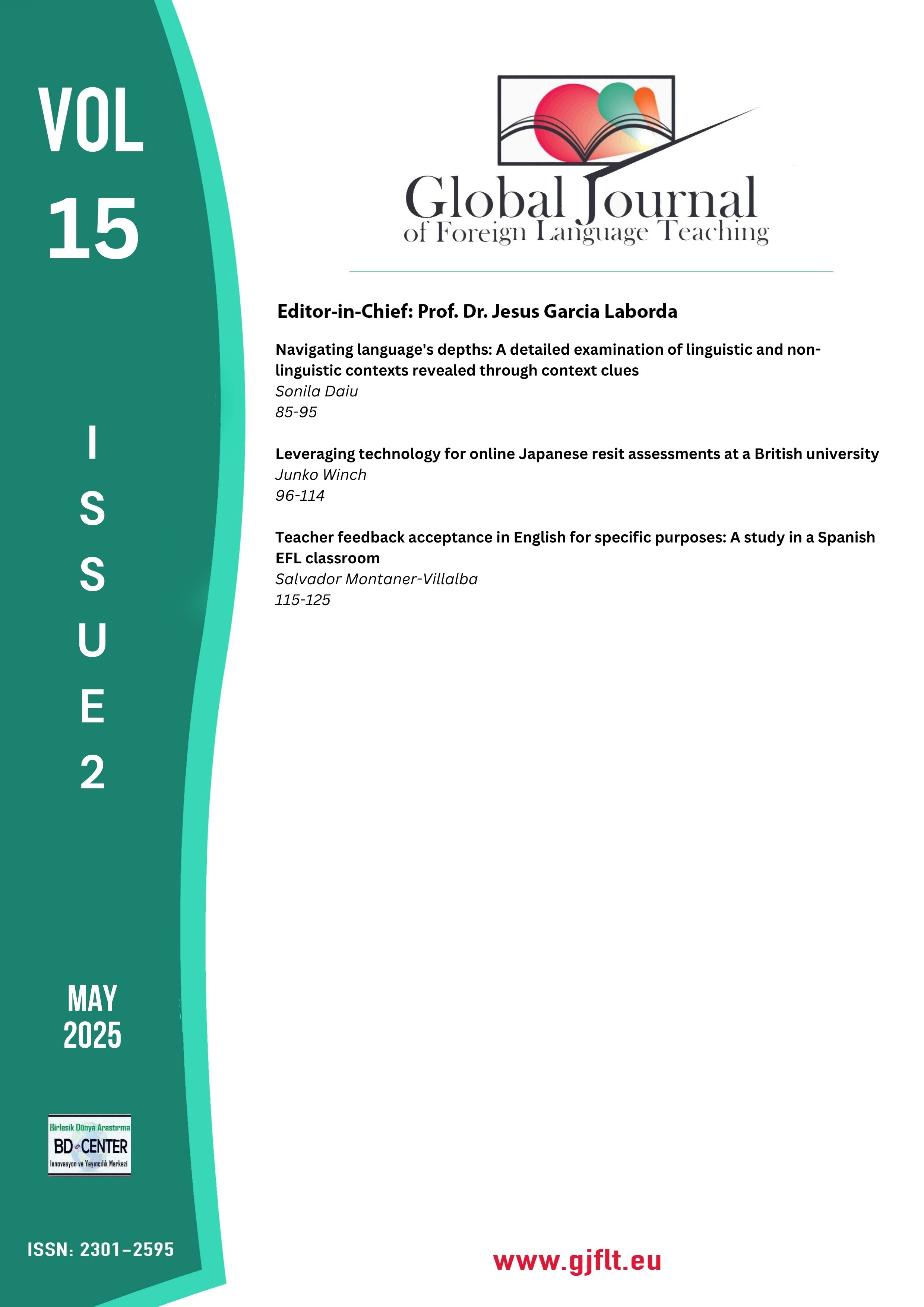Navigating language's depths: A detailed examination of linguistic and non-linguistic contexts revealed through context clues
Main Article Content
Abstract
The majority of educators currently acknowledge that students need to understand and know how to use language forms in authentic communication and text environments. The meaning of a language unit becomes clear through linguistic context that consists of surrounding word selection and discourse structures and syntactic and morphological indicators. The practice of contextualizing language learning theory has existed in language education since at least theoretical first principles were introduced. The research discusses various context signals within sentences or sections that assist readers to interpret unfamiliar vocabulary and new words. This study examines the six context clues of definition, logic deduction, synonyms, antonyms, root words and affixes and grammar through document/text analysis which belongs to qualitative research methodologies. Students require context clues to create their own word-learning strategies that lead to more enriched vocabulary comprehension during talks with others as well as while reading.
Keywords: Linguistic context, lexical units, context clues, word, meaning
Downloads
Article Details

This work is licensed under a Creative Commons Attribution-NonCommercial-NoDerivatives 4.0 International License.
Authors who publish with this journal agree to the following terms:- Authors retain copyright and grant the journal right of first publication with the work simultaneously licensed under a Creative Commons Attribution License that allows others to share the work with an acknowledgement of the work's authorship and initial publication in this journal.
- Authors are able to enter into separate, additional contractual arrangements for the non-exclusive distribution of the journal's published version of the work (e.g., post it to an institutional repository or publish it in a book), with an acknowledgement of its initial publication in this journal.
- Authors are permitted and encouraged to post their work online (e.g., in institutional repositories or on their website) prior to and during the submission process, as it can lead to productive exchanges, as well as earlier and greater citation of published work (SeeThe Effect of Open Access).
